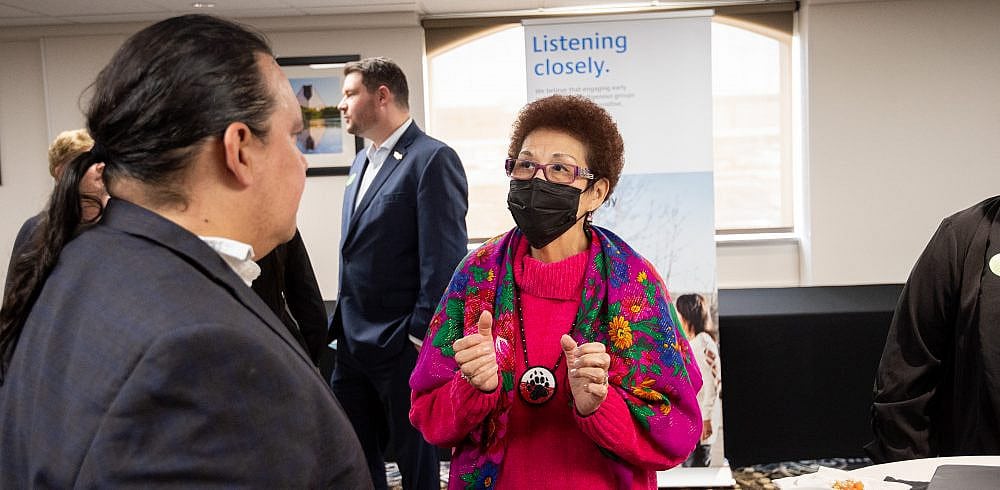8-minute read

CODE Newsletter | Issue #4
These CODE newsletters are meant to inspire you to reflect on your commitment to diversity, equity, and inclusion, find valuable resources to further action and develop skills needed to facilitate bold change.
Written by Sanjana Vijayann, Diversity and Inclusion Manager
Data & DEI
Last week, The Chamber launched the newest program within CODE; the CODE Coalition. The Coalition is a group of organizational leaders who share a commitment to furthering diversity, equity and inclusion (DEI) in the workplace. Signing Coalition Members carefully reviewed and signed on to three commitments:
- A commitment to continuous learning
- Developing and implementing diversity, equity, and inclusion strategy
- Commitment to measuring progress
Let’s focus on Commitment #3 for this newsletter:
#3–Measuring your progress with Diversity, Equity & Inclusion
We commit to reporting on our workplace strategy and actions towards these commitments, to track our collective progress towards our diversity, equity, and inclusion (DEI) goals.
Why is this important?
As more and more organizations are responding to the call to be more inclusive and equitable, many are unsure about how to embed accountability measures into their strategies, measure progress, and use data to truly understand where they stand. Organizational leaders can use data effectively to ensure that their DEI work is meaningful, creates accountability, and measures progress while avoiding performative actions that are too often easily recognizable. Data further provides deep insight into overlooked issues, biases, missed opportunities, and equips organizations with the ability to take corrective action.
Recognizing the importance of data, we partnered with the University of Winnipeg’s Institutional Analysis Office to measure and evaluate the impact that CODE has in advancing diversity, equity, and inclusion. Aynslie Hinds and Christina Beyene, our Project Evaluators work closely with the Chamber team to create and embed data collection and evaluation processes within our programs to ensure that we are continuously assessing our work to ensure impactful progress.
We asked Anyslie Hinds, the Senior Analyst, Data Analysis & Special Projects from the University 3 questions about why data matters. Here’s what we asked her:
matters. Here’s what we asked her:
- Should we collect DEI Data in the workplace? Why does this matter?
Workplaces should collect DEI data as it allows them to track progress towards their DEI goals. This information can be summarized and displayed on a dashboard, which would enable organizational leaders to make evidence-informed decisions about whether changes are needed (or not) to their DEI initiatives.
However, before data is collected, organizational leaders need to be clear on their goals, so everyone has a common understanding of why this information is being collected. This is particularly true for sensitive data like employee identity characteristics. Decisions need to be made about what data to collect, how to collect it, how to store it securely and for how long, who has access to it, and how it’s going to be used and by whom. Transparency is a key step in creating confidence and trust among employees.
2. How can we start collecting DEI-relevant data?
I recommend starting with what you are trying to achieve and working backward to figure out how you’ll know if you got there. Review your existing data sources as your organization may already be collecting relevant DEI data. Data, which can be quantitative or qualitative, comes in many forms. For example, data may be collected and/or produced as part of daily business activities, like HR, finance, sales, or procurement data. Even meeting minutes and policy/procedure documents, which record how situations are handled and who makes decisions, are data. Once you’ve taken stock of your existing data sources, you can then identity the data gaps and fill them by creating new data collection tools (e.g., surveys, interview guides) or finding and using existing tools. There are lots of DEI evaluation tools available. Before implementing a tool, I recommend asking others to review it and pilot test it. Ideally, new data will be collected as part of the activities people already do so that it is not too onerous.
3. What advice can you share for common pitfalls when it comes to monitoring and evaluating progress on DEI strategies?
My advice is to not be afraid to monitor and evaluate your progress out of concern that others will judge that you’re not doing enough or you’re not far enough. Everyone is on this journey and it’s going to take time.
I also recommend doing “evaluation” in a team, from collaboratively developing the evaluation plan to holding “data parties” to share the findings. Bringing together individuals in different roles with diverse perspectives will enrich the process, and will increase the likelihood that the evaluation results will be used. It is also a great way to create organizational evaluation capacity.
Want to learn more about data collection and evaluation from Anyslie? Attend our CODE Conference on May 26th where she will be hosting a workshop on how to effectively embed data collection, monitoring, and evaluation into your organizational DEI strategy. Register now to take advantage of early bird ticket prices!
Here’s what Anyslie had to say when we asked her what attendees can expect to learn from attending her workshop at the CODE Conference:
“During the workshop at the CODE conference, I will guide attendees through the process of developing, and implementing an evaluation plan for a DEI initiative. I will also share useful resources and open the floor to evaluation-related questions.”
In the meantime, check out this website for useful resources and tips about evaluation!
Evaluation Resources:
- A guide to employee diversity, equity and inclusion surveys by WorkTango
- DEI Data Collection Guide Schusterman Family Philanthropies
- Respectful Collection of Demographic Data by Sarai Rosenberg
- Diversity Data Guide by PwC
What I’m (re)Reading: Invisible Women: Data Bias in a World Designed for Men by Caroline Criado Pérez
Upcoming CODE Events:
- CODE Workshop: Gender Inclusive Langauge | Monday, March 7
- CODE 101 | Tuesday, March 15
- CODE Coalition Forum | Wednesday, March 30
March Dates of Importance:
- Women’s History Month | March 1-31 2022
- International Women’s Day | March 8, 2022
- Holi | March 19, 2022
- International Day for the Elimination of the Racial Discrimination| March 21, 2022
- International Transgender Day of Visibility | March 31, 2022








